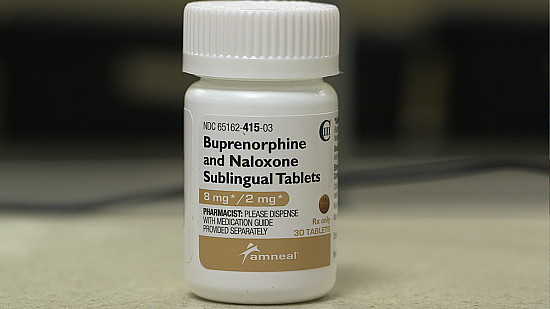Opioid crisis: The difference between sympathy and empathy

Follow me at @Drmoniquetello
I was on call. I looked down at my pager and saw that dreaded message:
Patient running out of pain meds needs immediate refill please call.*
Ugh. More often than not, the phone call that follows this page is full of excuses, explanations, promises, and demands. This one was no exception:
So sorry to bother you, I know you’re only covering. My doctor prescribes me oxycodone for my back pain. It’s horrible pain that I live with. I’m on disability for this.
But my niece was visiting last weekend, and I lifted her up. I shouldn’t have done that, I know! I wrenched my back bad, and I’ve had to double up on my pills, so I’m going to run out a week early.
I’m going to need more pills than usual, since I threw my back out. It REALLY hurts. If I could get twice the normal number that would be great.
I swear I don’t even like to take this stuff unless I really have to! I hate taking pills! My doctor knows I don’t abuse this stuff.
The whole time, my stomach was twisting, my gut instinct practically screaming FRAUD LIES SCAM RUN AWAY, but there I was, on the other end of the phone — and on the hook to deal with this.
In the past few years, laws and guidelines around prescribing opioid pain relievers have changed, and for the better. My own hospital issued requirements and guidelines around opioid prescribing for physicians in January 2014. Since then, for any calls like this one, I now need to check the patient’s record for the signed controlled substance contract on file, and then review their recent drug and toxicology screens. At my hospital, all patients on chronic narcotic drugs are required to have a contract on file, and a minimum of yearly urine drug screening. That urine test had better show only the prescribed drugs, and no illicit ones; any aberrance could result in a cancellation of the prescription, fair and square.
In addition to that, in March 2016, Massachusetts signed into law numerous requirements for doctors, including mandated review of the Prescription Monitoring Program (PMP) database before writing a prescription for any narcotic for any patient. The PMP lists every single narcotic prescription filled by anyone anywhere in the state, when it was filled, and who prescribed it. I can tell at a glance if someone’s been receiving scripts elsewhere, also known as “doctor-shopping.”
So, while this patient pushed hard for her early refill of a double prescription, I checked the data. In this case, the data were on my gut’s side. Yes, there was the signed contract that clearly stated that the patient would not ask for early refills, and would only get refills from their usual provider. And there was recent drug screening that did not show any oxycodone, but did show THC (marijuana). The absence of the opiate reveals that the patient is not taking it regularly, and diversion should be considered.
There it was: the decision on whether or not to prescribe was taken out of my hands.
Still, this is not a pleasant conversation to have. I calmly explained to the patient:
I’m sorry, but your request and your drug testing results are not compatible with our mandated prescribing guidelines. Therefore, I cannot prescribe this for you.
Needless to say, this was not well-received. The patient expressed outrage and defamation. She was going to complain to the hospital administration about me.
She described all the reasons why the testing may be incorrect. And then insisted that all of this had already been cleared with her doctor.
Then came blame, guilt-tripping, drama:
I’m in so much pain. What kind of a doctor are you, that you can leave someone like me totally stranded here, in pain? I’m suffering. You don’t know what it feels like to have this pain. If you had this pain, you would be begging for medication, you know it.
I stuck to my line, quietly, firmly. It went on and on. I did not budge.
Then, very suddenly, there was a change in the patient’s tone. There was a higher pitch, a desperate crack in her voice:
Okay. You don’t understand. I have two kids, I’m on my own, and I’m having money troubles. I need all the income I can get right now, just to put food on the table, to put lunches in the lunch boxes. I don’t need this from you right now. Okay? Can you just fill my prescription?
I understood right away that this patient was almost admitting that she was, indeed, selling her pills on the street, for profit. She had likely come to depend on this income. And I was shutting it off.
When I repeated again why I could not fill this prescription, the lady railed at me, called me several choice expletives, and hung up.
While I did not feel sorry or sad or bad about not filling the prescription — it would have been illegal for me to do so, with proof of likely diversion — I did have a glimpse of understanding of where the patient was coming from.
I could picture the squalid apartment, the almost-empty refrigerator, the kids in Goodwill clothes, the landlord demanding the rent. I could hear her frustration with everything: fighting with the ex for alimony, waiting in line at the food pantry, relatives turning their backs. I was touched that she had come that close to a full confession, to revealing a painful and shameful truth.
And that is the difference between sympathy and empathy: sympathy would have been feeling sorry or bad or sad. Empathy is to have a better understanding of where she was coming from, and from that, to feel… a sort of kindness. I was able to come away from the encounter without judgment, and forgive.
There but for the grace of God go I.
It didn’t make what she was doing alright, and it didn’t change my management. I was more than happy to get a few oxycodone pills off the street. Heck, I couldn’t even wait to get off the phone and be done with the whole unpleasant experience.
But I had been given a snapshot explanation of why she was who she was, and what would make someone do what she was doing. With that understanding comes empathy; and when you’re trying to take care of another person, empathy makes all the difference.
Based on an essay originally published Sept. 24, 2015 at www.generallymedicine.com
*All messages from patients in this article represent a composite of cases. Any characteristics that could identify a specific person have been omitted or changed.
About the Author

Monique Tello, MD, MPH, Contributor
Disclaimer:
As a service to our readers, Harvard Health Publishing provides access to our library of archived content. Please note the date of last review or update on all articles.
No content on this site, regardless of date, should ever be used as a substitute for direct medical advice from your doctor or other qualified clinician.















